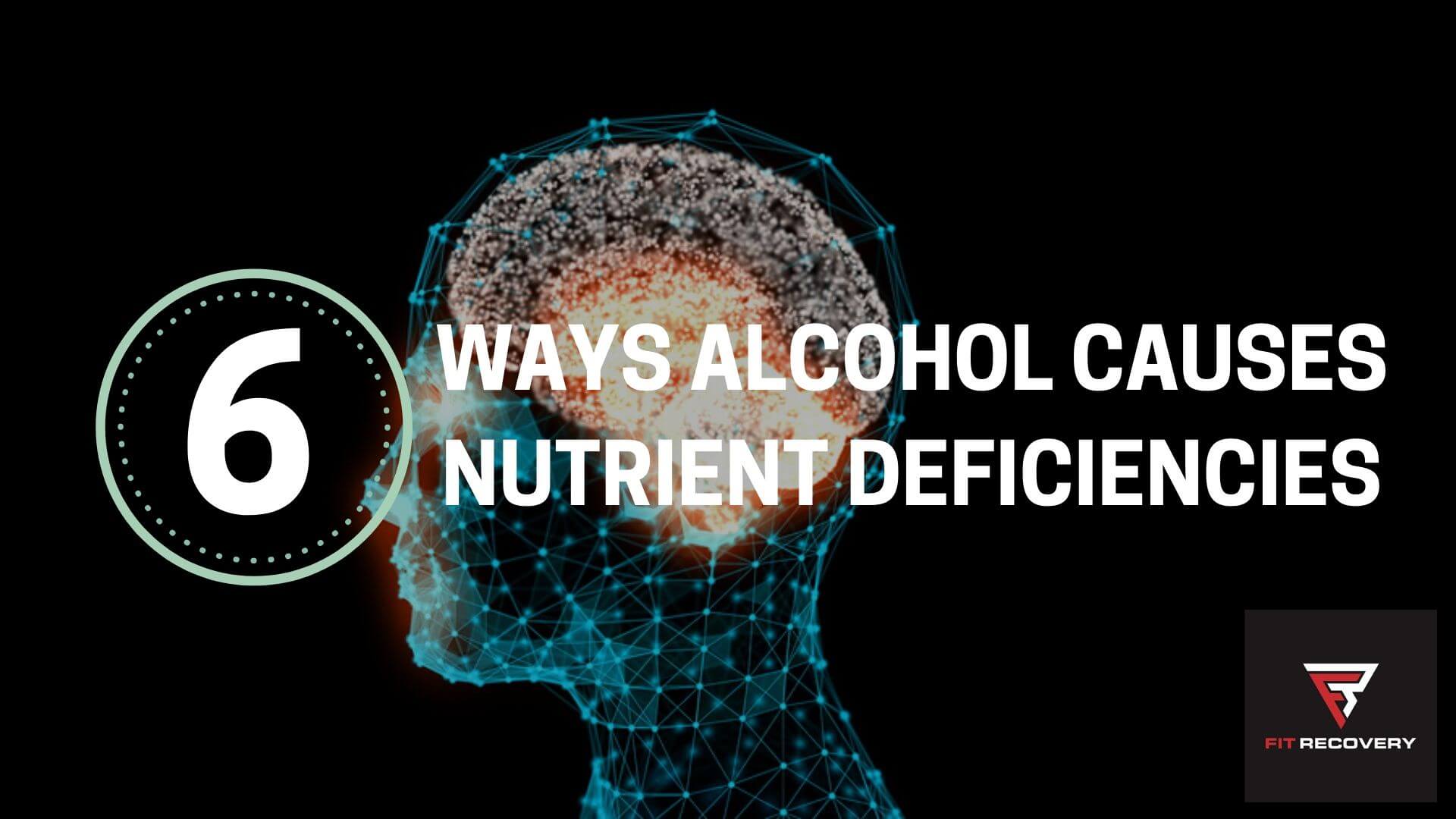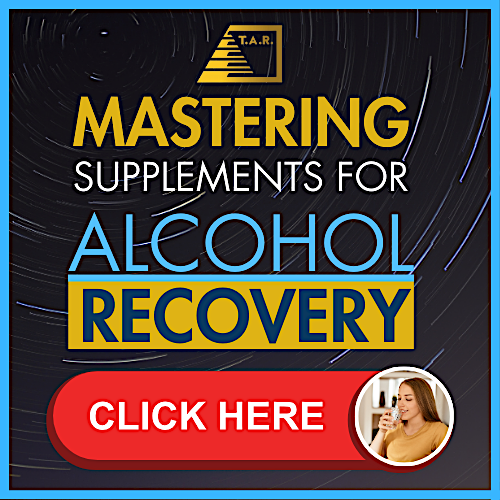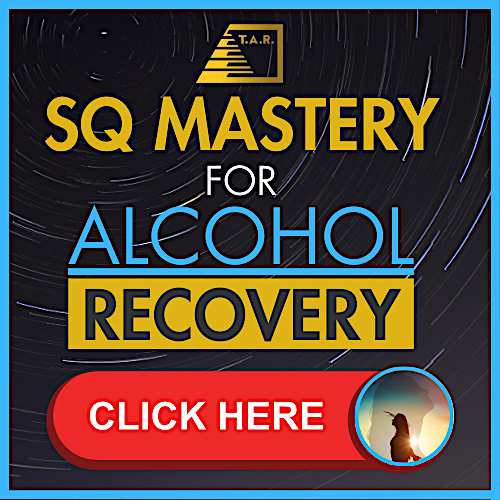I had always considered myself health-conscious.
Even during the most brutal years of my alcohol addiction.
In an attempt to balance out the obvious damage that alcohol was inflicting on my health, I did strange things. I spent a month in which I only consumed raw kale, fish, rice, water – and vodka.
During that month, I did the T25 exercise routine to the best of my ability – while drinking – every single day.
I had willpower, but not the willpower to quit drinking.
I discovered years later that what I’d really needed during that whole period was physical restoration, so that I could produce the neurotransmitters and hormones required to feel stable without alcohol.
Nothing made me feel better until I:
- Banished toxic alcohol from my body
- Discovered basic supplements that transformed my mood and health
- Built a rock-solid mindset that revolved around fitness and purpose
I had no idea that I was deficient in any nutrients until I felt 1,000 times better after taking certain supplements.
In the video below, I discuss the mechanisms by which alcohol causes these nutrient deficiencies in the first place.
(Click here to watch the video on YouTube)
Alcohol And Nutrient Deficiencies
Here’s a quick breakdown of the 6 ways that alcohol causes nutrient deficiencies:
- Diuretic Effect – Alcohol leaches water and water-soluble nutrients
- Damaged Gut Lining – Chronic alcohol consumption corrodes the stomach and small intestine
- Damaged Gut Microbiome – Alcohol disrupts the gut’s delicate balance of beneficial microorganisms
- Foregone Calories –
EmptyToxic alcohol calories crowd out high nutrient-density foods - Overworked liver and pancreas – When preoccupied with alcohol, the liver cannot make vitamins and minerals available to the body – and the pancreas over-pumps the body with insulin, removing both sugar and amino acids from the blood
- Acetaldehyde – Precious antioxidants are spent mopping up this toxic free radical byproduct of alcohol
Nutrient deficiencies contribute to mental health problems like anxiety, depression, and insomnia.
There are three main reasons for this:
- Vitamins and minerals serve as cofactors for enzymes involved in the production of neurotransmitters (“feel-good” chemicals that make us feel like life is worth living)
- Amino acids are the precursors for neurotransmitters
- Fatty acids are the building blocks for brain cells
No wonder I felt so much better after quitting alcohol and repairing my brain with basic supplements!
Concluding Thoughts
To learn all about supplementation for alcohol recovery and start feeling better as SOON as possible, enroll in my online course, Total Alcohol Recovery 2.0.
I hope you enjoyed this video! To stay posted for more, be sure to subscribe to the Fit Recovery channel on YouTube.
If you have any questions about alcohol and nutrient deficiencies, feel free to leave them in the comment box below.
Authors
-
Chris Scott founded Fit Recovery in 2014 to help people from around the world dominate alcohol dependence and rebuild their lives from scratch. A former investment banker, he recovered from alcohol dependence using cutting-edge methods that integrate nutrition, physiology, and behavioral change. Today, Chris is an Alcohol Recovery Coach and the creator of an online course called Total Alcohol Recovery 2.0.
View all posts -
Dr. Rebeca Eriksen is the Nutritional Consultant for Fit Recovery. She has a PhD in Nutritional Genetics from Imperial College London, and over ten years of clinical experience designing custom nutritional repair regimens for patients recovering from alcohol addiction. In addition to her work at the exclusive Executive Health clinic in Marbella, Spain, she helps to keep Fit Recovery up to date with emerging research.
View all posts













Did your body heal entirely? Curious, my husband just got fired at a job he has been at for 20 years due to his drinking. Came home, drank himself into a stupor was unresponsive to the point I had to call 911. BAC was .30, liver enzymes were 4x the normal limit and has glucose was 368. I wonder if he is beyond repair at this point. He is 56 years old and has a drinking history very similar to yours.
Hi Linda, sorry to hear this. I can tell you that my body absolutely healed entirely – and there’s definitely hope for your husband.
I quit in my late 20s, but otherwise my situation wasn’t too dissimilar from what you’ve described. I’d been drinking insane amounts for a decade. Supplementation, diet, working out, and support from family and friends helped me recover completely.
I am curious to know how much you were drinking and for how long before you quit? Thank you for all your articles.
Hi Stacie, thanks for your comment. I drank for over a decade and it steadily progressed from heavy drinking only at parties, to a bottle of wine per night for awhile with the occasional binge, to a fifth of vodka per night, to over two fifths of hard alcohol throughout each day to feel stable. I forced myself into “dry periods” lasting a few weeks at a time throughout all of this. Because I never found a reason to question drinking back then, I always slipped back into the cycle – which became worse each time.